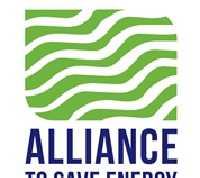DALLAS – November 2, 2015 – (RealEstateRama) — Businesses and organizations across the country are saving money and reducing their environmental footprint by using combined heat and power (CHP) technology in their buildings. These highly efficient systems simultaneously produce electricity and heat from a single fuel source, often resulting in reduced energy costs. The U.S. Environmental Protection Agency’s (EPA) CHP Partnership helps businesses, governments, and other energy users to develop new projects.
CHP, also known as cogeneration, provides on-site generation of electrical or mechanical power using waste-heat recovery for heating, cooling, dehumidifying, or process applications. CHP works with a variety of technologies and fuel types, such as natural gas, biomass, or even coal and oil, and CHP systems can work for new or existing building infrastructure. In this way, a facility can provide energy services on-site instead of purchasing electricity from a utility.
CHP provides many benefits, to the user and beyond. It can reduce emissions of greenhouse gases and other pollutants by 40 percent or more while using essentially no water resources. CHP also reduces congestion and demand on the electricity grid and defers the need for investments in new central generating plants and transmission infrastructure. To learn more about the EPA CHP Partnership and how your business or organization can develop a CHP system, see http://www3.epa.gov/chp/index.html.
Increasing energy efficiency for your business or school not only helps your own bottom line, but the planet’s as well. That’s because using less and cleaner energy means reducing the greenhouse gases that contribute to climate change. Communities all over the world are already feeling the effects of climate change, from more heat waves and drought to extreme weather events like hurricanes and flooding. Learn more about how EPA is fighting climate change with the Clean Power Plan: http://www2.epa.gov/cleanpowerplan
Contact Information: Jennah Durant or Joe Hubbard, , 214 665-2200













